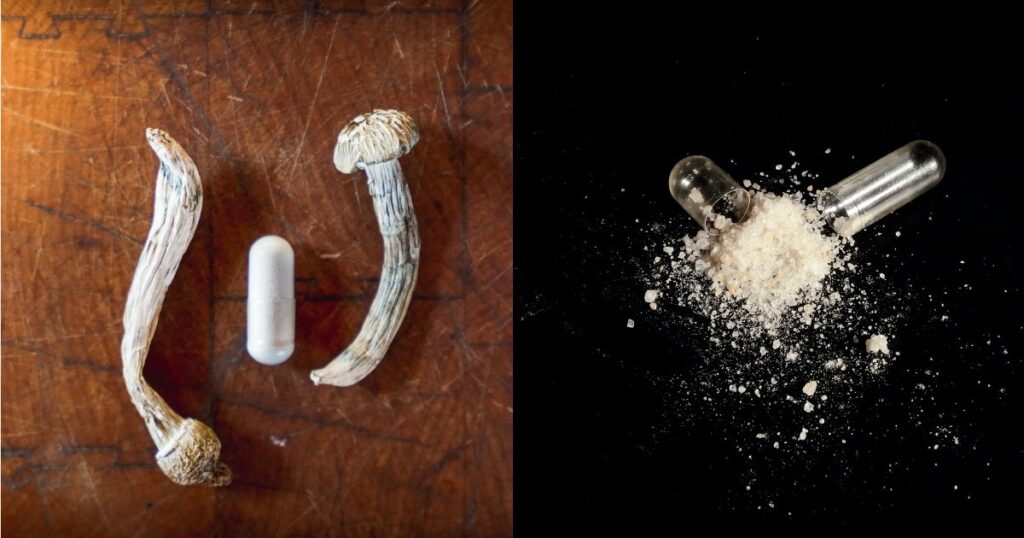Psychedelics as therapeutic tools are no longer relegated to the fringes of medicine. They are more and more stepping into the mainstream, and with recent comments from FDA Commissioner Dr. Marty Makary describing the exploration of psychedelic treatments as a “top priority.” While their promise as medical game-changers, particularly for veterans and trauma survivors, has brought excitement among researchers and advocates alike, the conversation surrounding their potential goes beyond just medicine. It touches on societal responsibility, systemic reform, and the need to listen to unheard voices.
What’s driving this sharp turn towards reconsidering psychedelics? How does this go beyond simply finding a one-size-fits-all treatment for vulnerable populations like veterans? Let’s break it down.
The Veterans’ Dilemma and the Moral Imperative
Dr. Makary has pointed out that many veterans carry the scars of fighting “unnecessary wars” and that recognizing and addressing their mental health needs is an ethical obligation. Veterans often face severe cases of PTSD, traumatic brain injuries, or treatment-resistant depression. For decades, traditional methods, from talk therapy to prescription medications, have lagged in effectively addressing these conditions. This failure has created a crisis in mental health that can no longer be ignored.
Veterans are not just patients; they are individuals who represent our collective responsibility as a society. Dr. Makary emphasized that listening to veterans themselves and the doctors treating them. Unlike traditional top-down approaches that prioritize bureaucratic procedures, this method seeks to align medical research with patient experiences to accelerate solutions. Psychedelics like psilocybin and MDMA show early signs of being able to offer relief where other treatments have failed, but their potential impact extends far deeper than just therapeutic outcomes.
Beyond Treatment Access
The Psychedelic Renaissance, as the current wave of interest is often called, is about more than administering medicine; it questions the healthcare system’s approach to discovery and healing. For Dr. Makary, the phrase “sickness system” rings painfully true. Historically, the status quo of modern medicine focused almost entirely on treatment rather than prevention, and everything had to fit into established silos.
Psychedelics have challenged this system by presenting outcomes that don’t map neatly onto pharmaceutical frameworks. Success indicators are more qualitative than quantitative, focusing on patient experience and long-term well-being rather than merely suppressing symptoms. This shift also offers significant implications for other underserved patient groups beyond veterans.
Addiction recovery, terminally ill individuals seeking peace during palliative care, and even those battling everyday stress are potential beneficiaries of psychedelic-based approaches, as initial research has indicated. By broadening the focus, psychedelic medicine could redefine the concept of wellness entirely, making room for more comprehensive, person-centered care.
A Bureaucratic Bottleneck That Needs Breaking For Psychedelic Medicine
Although the therapeutic potential of psychedelics has been recognized dating back to mid-20th century research, regulatory hurdles have impeded widespread clinical application. Substances like psilocybin and MDMA remain classified federally as Schedule I drugs, categorized alongside substances with “no accepted medical use” and “high potential for abuse.” This restrictive status persists despite growing scientific evidence highlighting both safety in controlled environments and efficacy in treating challenging conditions.
Acknowledging this, Dr. Makary explicitly prioritized cutting through the red tape plaguing psychedelic approval processes. He called out the traditional methods of evaluation that can often take years to reach final conclusions, emphasizing the immediacy of the crisis facing veterans and other affected populations. His push for “independent evaluations” completed at a faster pace reflects an increasing recognition that innovative medical approaches cannot afford to be shackled to outdated policies.
The military community has often played a role in advancing medical treatments, from emergency trauma care to prosthetics. Psychedelics now hold similar possibilities. Early supporters, including members of Congress, have introduced potential initiatives to fund research centers at VA facilities. While debate continues, FDA officials like Dr. Makary appear increasingly committed to finding viable ways forward without relegating reform to political or partisan gridlock.
A New Way of Listening
There’s also something remarkable about how narratives rather than numbers have driven this shift toward psychedelics. From public backing by veterans to doctors willing to test treatments in real-world conditions, stories of transformation have been important.
Consider this hypothetical scenario. A veteran who has struggled for years with traditional therapy suddenly experiences profound relief after undergoing a psilocybin-assisted therapy session. This single story breaks the stigma often surrounding mental health and elevates psychedelics in a way that a hundred clinical trial results might not. These narratives, shared on platforms from congressional hearings to grassroots campaigns, are forcing decision-makers to acknowledge the qualitative alongside the quantitative.
The FDA’s renewed focus on listening could mean centering these narratives more prominently. It’s about hearing how and why certain treatments worked, understanding the context of individual cases, and basing policy not solely on spreadsheets but on human experience.
Psychedelic Medicine and a Holistic Future
At its core, the discussion about psychedelic medicine concerns not just the efficacy of these treatments but also a larger reimagining of what health means in the 21st century. Dr. Makary’s commentary highlights a growing recognition of interconnectedness. Psychedelics are not magic bullets, but they invite conversations about mindfulness, spirituality, and reshaping societal attitudes toward trauma and healing.
The potential is enormous, but so are the challenges. Addressing systemic stigma, combating misinformation, and balancing safety with speed will take time to resolve. Success will depend on an “all hands on deck” approach involving scientists, lawmakers, and impacted communities.
Psychedelics could reshape medicine, but their success depends on our ability to rise to the moment. It’s not enough to see them as just another category of drugs; they represent a new chapter in how society considers recovery and collective care.
















